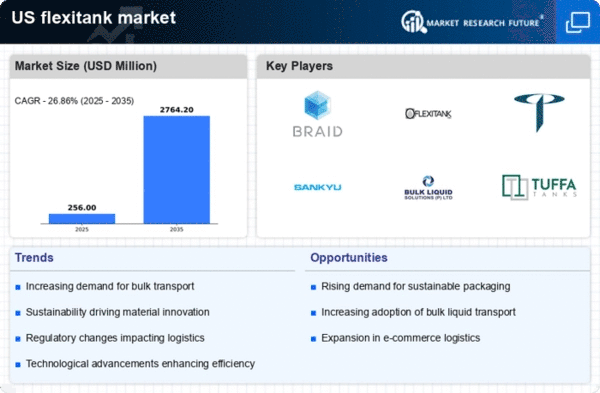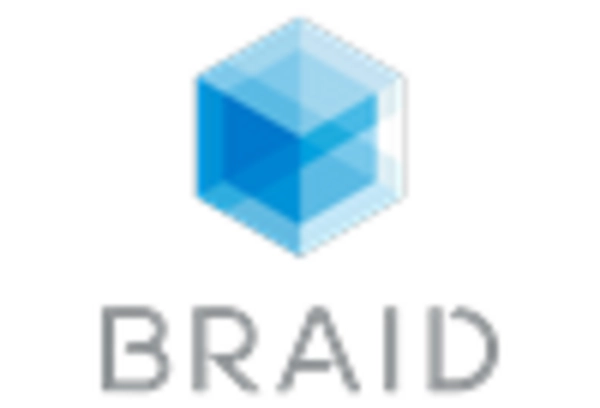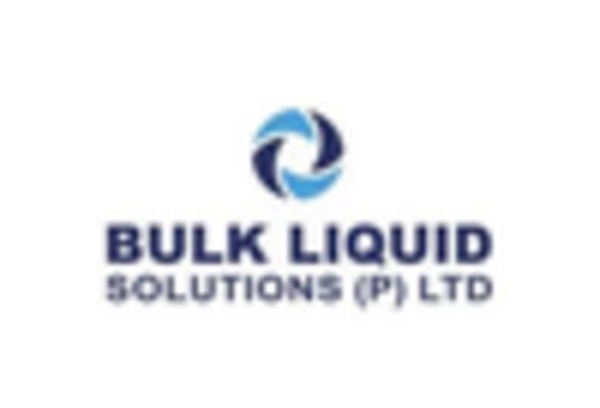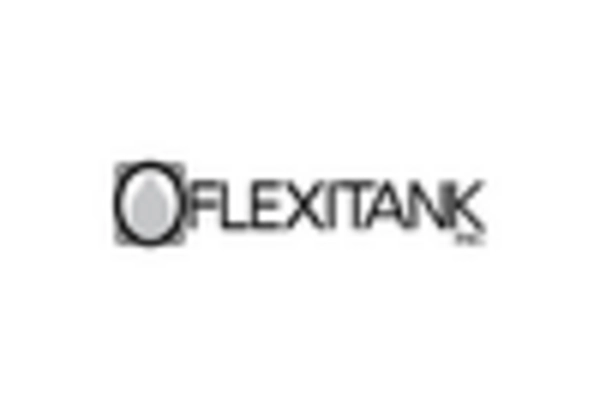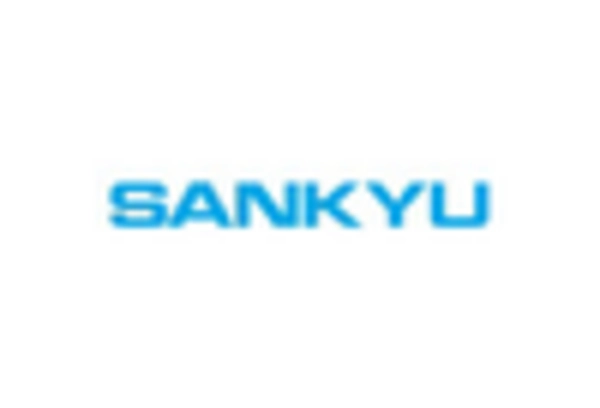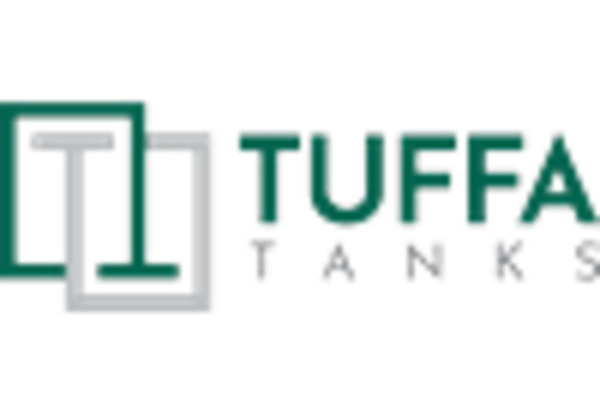Cost Efficiency in Logistics
Cost efficiency remains a critical driver in the flexitank market, as businesses continuously seek ways to reduce shipping expenses. Flexitanks provide a more economical solution compared to traditional bulk transport methods, such as drums or IBCs. The ability to transport larger volumes of liquid in a single shipment reduces the overall transportation costs, which is particularly appealing to companies operating on tight margins. In the US, logistics costs account for a significant portion of operational expenses, and the adoption of flexitanks can lead to savings of up to 30% in shipping costs. This financial incentive is likely to encourage more businesses to consider flexitanks as a viable option for their liquid transportation needs, thereby driving growth in the flexitank market.
Environmental Regulations and Compliance
The flexitank market is influenced by the increasing stringency of environmental regulations in the US. Companies are under pressure to comply with regulations aimed at reducing waste and promoting sustainable practices. Flexitanks, being reusable and recyclable, align well with these regulatory requirements, making them an attractive option for businesses looking to enhance their environmental credentials. The ability to minimize packaging waste while ensuring safe transport of liquids positions flexitanks as a favorable choice in the eyes of regulators and consumers alike. As more companies strive to meet compliance standards, the adoption of flexitanks is likely to grow, thereby contributing to the expansion of the flexitank market.
Increased Focus on Supply Chain Resilience
The flexitank market is benefiting from an increased focus on supply chain resilience among US businesses. Companies are reevaluating their logistics strategies to mitigate risks associated with supply chain disruptions. Flexitanks offer a robust solution for transporting liquids, as they can be easily integrated into existing supply chains without the need for specialized equipment. This adaptability is particularly advantageous in times of uncertainty, as it allows companies to respond swiftly to changing market conditions. Furthermore, the flexibility of flexitanks enables businesses to optimize their shipping processes, ensuring that they can maintain a steady flow of goods. As organizations prioritize resilience in their supply chains, the demand for flexitanks is expected to rise, positively impacting the flexitank market.
Rising Demand for Bulk Liquid Transportation
The flexitank market is experiencing a notable increase in demand for bulk liquid transportation solutions. This trend is driven by the growing need for efficient and cost-effective shipping methods across various industries, including food and beverage, chemicals, and pharmaceuticals. Flexitanks offer a flexible and lightweight alternative to traditional shipping containers, allowing for the transport of large volumes of liquids without the risk of contamination. In the US, the market for flexitanks is projected to grow at a CAGR of approximately 8% over the next five years, reflecting the increasing preference for flexible packaging solutions. As companies seek to optimize their supply chains, the adoption of flexitanks is likely to rise, further propelling the growth of the flexitank market.
Technological Innovations in Packaging Solutions
Technological innovations are playing a pivotal role in shaping the flexitank market. Advances in materials science and manufacturing processes have led to the development of more durable and efficient flexitanks. These innovations enhance the performance of flexitanks, making them suitable for a wider range of liquids, including hazardous materials. In the US, the introduction of smart packaging technologies, such as sensors and tracking systems, is further revolutionizing the way flexitanks are utilized. These technologies provide real-time monitoring of liquid conditions during transport, ensuring safety and compliance with industry standards. As businesses increasingly adopt these advanced packaging solutions, the flexitank market is poised for substantial growth.


